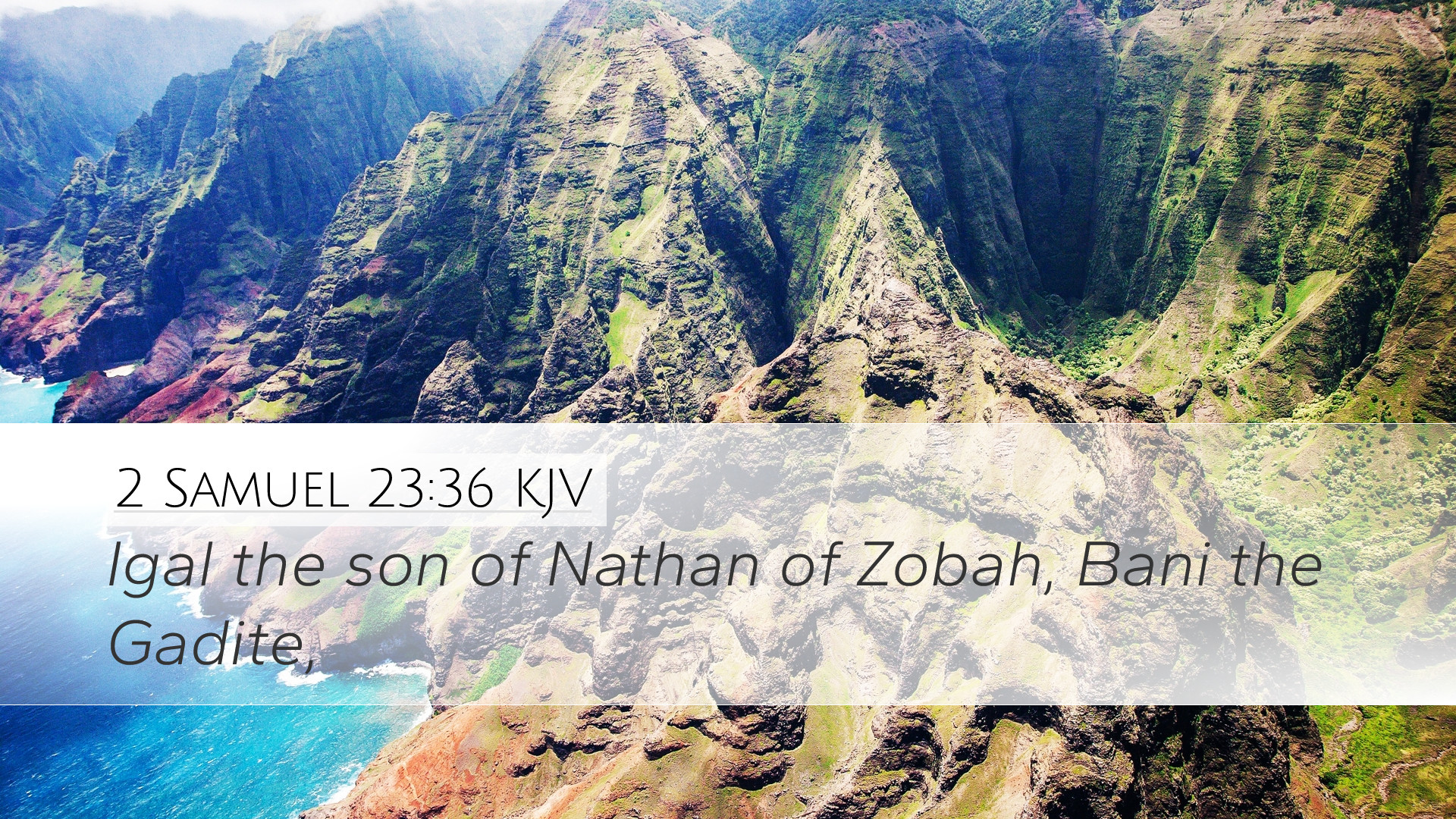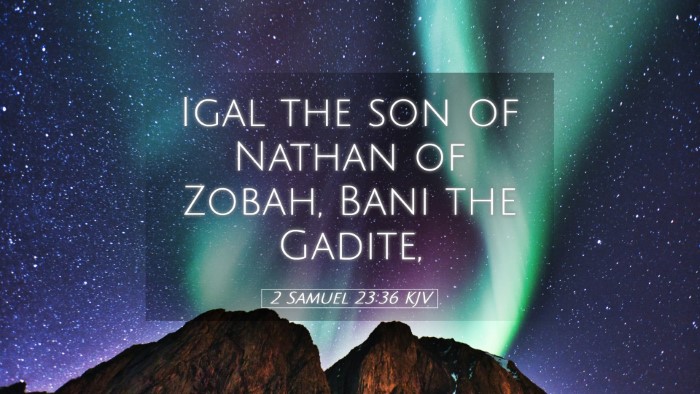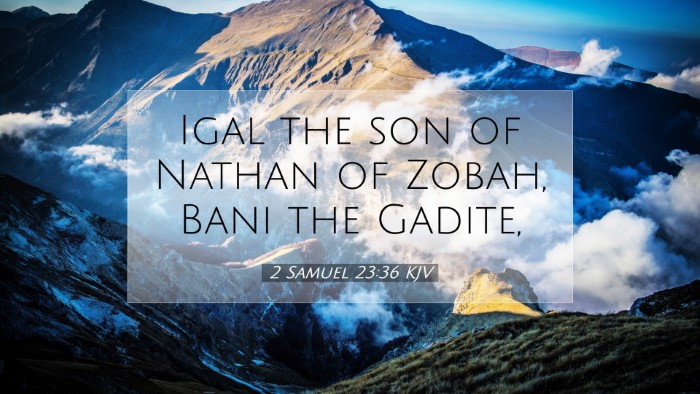Commentary on 2 Samuel 23:36
2 Samuel 23:36 is a brief but significant verse within the context of David's mighty men, focusing on the valor and the legacy of a specific warrior, Jaalah. This verse reads:
"And Hashai the Hararite." - 2 Samuel 23:36
Contextual Background
This verse falls within the narrative of the last words and the list of David's mighty men, which showcases the loyalty, strength, and courage of those who fought alongside David. Understanding this context is essential for grasping the full meaning of the verse.
Commentary Insights
The commentary from various public domain sources provides valuable insights into this text, particularly in understanding the import of mentions like Hashai the Hararite and the implications for leadership, loyalty, and faithfulness.
Insights from Matthew Henry
Matthew Henry highlights the importance of the mighty men as a reflection of David's own character and leadership. He notes:
- Valour and Loyalty: The mention of Hashai signifies the loyalty that was characteristic of David's warriors. Their commitment was not only to their leader but also to the broader cause of God's chosen people.
- Significance of Location: Being identified as a Hararite suggests Hashai's origins. This emphasizes the diversity within David's following and how God uses people from various backgrounds for His purposes.
- Reflection of God’s Favor: Henry suggests that the mention of these men serves to illustrate God's provision and protection over David during times of warfare.
Insights from Albert Barnes
Albert Barnes' commentary focuses on the collective identity of David’s men:
- Heroism: Barnes emphasizes that these individuals were not mere soldiers but were recognized for their extraordinary acts of bravery in battle. Hashai represents the type of commitment required in loyal service to the king.
- Covenant Community: The loyalty exhibited or suggested in this context fosters an understanding of the covenant community, wherein each individual plays a critical role in the ongoing story of God's people.
- Divine Purpose: The lives of these warriors, as noted by Barnes, speak to the larger narrative of divine purpose in the history of Israel’s monarchy during a tumultuous time.
Insights from Adam Clarke
Adam Clarke offers a more detailed exploration of the implications behind the identities of David’s warriors:
- Strategic Importance of Hashai: Clarke points out the strategic importance of such warriors like Hashai in the political and military landscape of ancient Israel. This reflects the necessity of strong leadership figures in governance.
- Symbol of Faith: He portrays Hashai not merely as a military figure but as a symbol of faithfulness in the struggle for righteousness, aligning with the broader themes of divine call and purpose.
- Historical Legacy: Clarke also touches upon how the legacies of such figures are significant; they provide a foundational understanding of what it means to stand firm in one's convictions despite opposition.
Theological Reflections
Considering the collective insights from these commentaries, several theological reflections arise from 2 Samuel 23:36:
- The Call to Leadership: This verse is part of a larger discussion on what it means to be a leader in God's Kingdom. Leaders are called to cultivate loyalty and inspire bravery among their followership.
- Faith in Action: The actions of Hashai symbolize the faith that is alive and active. It invites contemporary believers to consider how they demonstrate their loyalty to God and His kingdom.
- The Importance of Community: The mighty men represent the vital role of community in advancing God's work. In today’s context, this speaks to the necessity of strong spiritual fellowship.
- Divine Sovereignty: The verse emphasizes God's overarching sovereignty in choosing and equipping individuals for particular roles in His plan.
Conclusion
In summary, 2 Samuel 23:36 serves as a succinct reminder of the staggering contributions of individuals like Hashai the Hararite to the narrative of David and the establishment of Israel. Through the insights drawn from Matthew Henry, Albert Barnes, and Adam Clarke, we see a multifaceted understanding of loyalty, capability, and faith in action. As pastors, students, and theologians reflect on this verse, they are encouraged to seek the deeper truths it presents regarding leadership, community, and divine purpose.


